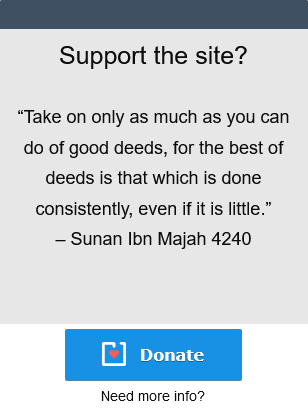Islam Religion: Beliefs and Practices of Muslims in The Faith of Allah
Islam religion is a major world religion, with a reach that extends across continents. It’s a faith shared by many Muslims, from different walks of life and diverse cultures. This religion continues to spread through conversion and growth in Muslim populations, becoming an integral part of society in various countries worldwide. From Indonesia, Pakistan, and India to Egypt, Iran, and beyond, Islam’s influence is evident in the daily lives and traditions of its followers.
Muhammad: The Final Prophet of Islam
Muslims regard Muhammad as the final prophet, following a lineage of messengers including Abraham, Moses, and Jesus. Muslims believe that Muhammad received revelations from God over a period of 23 years. These revelations, delivered by the angel Gabriel, form the basis of the religion’s teachings. Many Muslims consider Muhammad’s life as an example of piety and morality to emulate.
Religion and Spirituality in the Islamic Context
In the Islamic context, religion and spirituality are deeply intertwined. Followers of Islam, both men and women, seek to cultivate a profound relationship with God through acts of worship, prayer, charity, and fasting. Understanding Islam involves recognizing its spiritual dimensions, such as the emphasis on inner peace, compassion, and forgiveness.
Moreover, Islam deeply influences societal norms and customs. For generations of Muslims, the religion has shaped their interactions, rituals, and celebrations. The principles of Islam provide guidance for various aspects of life, fostering a cohesive social fabric.
Faith: The Cornerstone of Islamic Life
Faith, or Iman, is the cornerstone of a Muslim’s life. This faith is not just about accepting Islam as a religion but also about embodying its teachings in every aspect of life. A Muslim is required to express faith through actions, such as performing the five daily prayers and demonstrating kindness to others.
Faith in Islam is rooted in the belief in one God and the acceptance of Muhammad as God’s final messenger. This faith inspires Muslims to strive for righteousness and justice, underlining the importance of ethical conduct. It also cultivates a sense of unity among Muslims, reinforcing the sense of a global community bound by shared beliefs.
The Five Pillars of Islam: Foundation of Muslim Practice
The Five Pillars of Islam form the bedrock of Muslim practice. They are central to the Muslim faith, guiding the belief and practice of Muslims worldwide.
Shahada: The Declaration of Faith
The first pillar, Shahada, is the declaration of faith. Muslims believe that there is no god but Allah, and Muhammad is the messenger of Allah. This concise statement, recited in Arabic, is a core tenet of Islam. It encapsulates the main message of Islam: the worship of one God and acceptance of Muhammad as His final prophet.
Salat: The Practice of Prayer in Islam
The second pillar, Salat, represents the daily prayers Muslims are required to perform. Muslims pray five times a day, facing the holy city of Mecca in Saudi Arabia. The mosque serves as a communal space for these prayers, but many Muslims also pray at home or wherever they may be when the time for prayer arrives.
Islam religion is a major world religion, with a reach that extends across continents. It’s a faith shared by many Muslims, from different walks of life and diverse cultures. This religion continues to spread through conversion and growth in Muslim populations, becoming an integral part of society in various countries worldwide. From Indonesia, Pakistan, and India to Egypt, Iran, and beyond, Islam’s influence is evident in the daily lives and traditions of its followers.
Muhammad: The Final Prophet of Islam
Muslims regard Muhammad as the final prophet, following a lineage of messengers including Abraham, Moses, and Jesus. Muslims believe that Muhammad received revelations from God over a period of 23 years. These revelations, delivered by the angel Gabriel, form the basis of the religion’s teachings. Many Muslims consider Muhammad’s life as an example of piety and morality to emulate.
Religion and Spirituality in the Islamic Context
In the Islamic context, religion and spirituality are deeply intertwined. Followers of Islam, both men and women, seek to cultivate a profound relationship with God through acts of worship, prayer, charity, and fasting. Understanding Islam involves recognizing its spiritual dimensions, such as the emphasis on inner peace, compassion, and forgiveness.
Moreover, Islam deeply influences societal norms and customs. For generations of Muslims, the religion has shaped their interactions, rituals, and celebrations. The principles of Islam provide guidance for various aspects of life, fostering a cohesive social fabric.
Faith: The Cornerstone of Islamic Life
Faith, or Iman, is the cornerstone of a Muslim’s life. This faith is not just about accepting Islam as a religion but also about embodying its teachings in every aspect of life. A Muslim is required to express faith through actions, such as performing the five daily prayers and demonstrating kindness to others.
Faith in Islam is rooted in the belief in one God and the acceptance of Muhammad as God’s final messenger. This faith inspires Muslims to strive for righteousness and justice, underlining the importance of ethical conduct. It also cultivates a sense of unity among Muslims, reinforcing the sense of a global community bound by shared beliefs.
The Five Pillars of Islam: Foundation of Muslim Practice
The Five Pillars of Islam form the bedrock of Muslim practice. They are central to the Muslim faith, guiding the belief and practice of Muslims worldwide.
Shahada: The Declaration of Faith
The first pillar, Shahada, is the declaration of faith. Muslims believe that there is no god but Allah, and Muhammad is the messenger of Allah. This concise statement, recited in Arabic, is a core tenet of Islam. It encapsulates the main message of Islam: the worship of one God and acceptance of Muhammad as His final prophet.
Salat: The Practice of Prayer in Islam
The second pillar, Salat, represents the daily prayers Muslims are required to perform. Muslims pray five times a day, facing the holy city of Mecca in Saudi Arabia. The mosque serves as a communal space for these prayers, but many Muslims also pray at home or wherever they may be when the time for prayer arrives.




